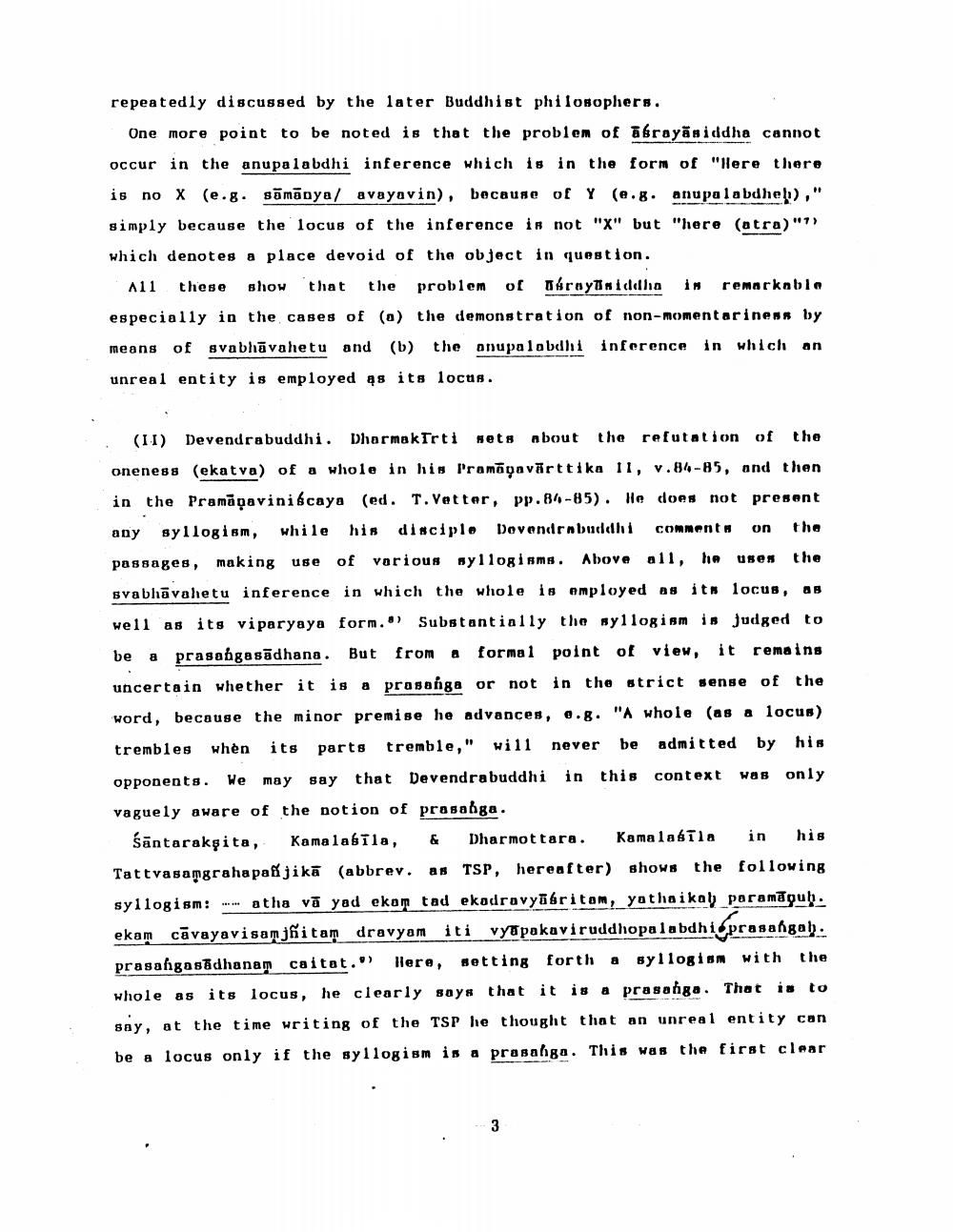________________
repeatedly discussed by the later Buddhist philosophers.
One more point to be noted is that the problem of abrayās iddha cannot occur in the anupalabdhi inference which is in the form of "Here there is no X (e.g. sīmãnya/ avayavin), because of Y (6.8. anupalabdheb)." simply because the locus of the inference is not "X" but "here (utra)"1) which denotes a place devoid of the object in question.
111 these show that the problem of Ohraytimiddha in remarkable especially in the cases of (a) the demonstration of non-momentariness by means of svabhūvahetu and (b) the anupalobdhi inference in which an unreal entity is employed as its locus.
(11) Devendrabuddhi. Dhormak Trti ets about the refutation of the oneness (ekatva) of a whole in his Pramāpavārttika 11, v.84-85, and then in the Pramāņaviniscaya (ed. T. Vetter, pp. 84-85). He does not present any syllogism, while his disciple Dovendrnbuddhi comments on the passages, making use of various syllogisms. Above all, he uses the svabhāvahetu inference in which the whole is employed as its locus, as well as its viparyaya form.") Substantially the syllogism is judged to be a prasangasādhana. But from a formal point of view, it remains uncertain whether it is a prasanga or not in the strict sense of the word, because the minor premise he advances, 6.8. "A whole (as a locus) trembles when its parts tremble," will never be admitted by his opponents. We may say that Devendrabuddhi in this context was only vaguely aware of the notion of prasanga.
śāntarakṣita, Kamalasīla, & Dharmottara. Kamalasīla in his Tattvasaņgrahapan jikā (abbrev. as TSP, hereafter) shows the following syllogism: -- atha vā yad ekan tad ekadravyābritam, yathaikal paramāpuh. ekam cāvayavisamjñitam dravyam iti vypakaviruddhopalabdhi prasangah. prasahgasādhanam caitat." Here, setting forth a syllogism with the whole as its locus, he clearly says that it is a prasanga. That is to say, at the time writing of the TSP lie thought that an unreal entity can be a locus only if the syllogism is a prabanga. This was the first clear




